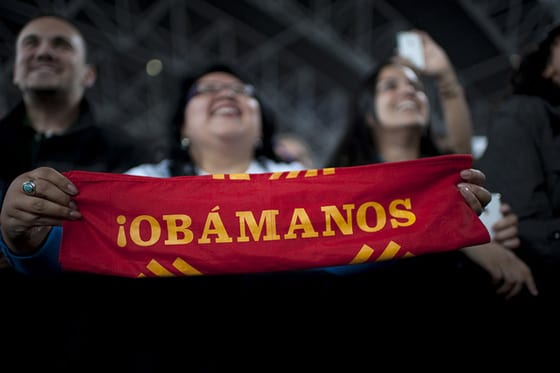When Barack Obama wins this election, it will be despite a sluggish economy, over 8 percent unemployment and unprecedented conservative spending by Super PACs — and because of his campaign’s field operation. Underpinning that field campaign is a vast corps of community volunteers and leaders
Today I organised a community campaign briefing in Charlestown in Boston Massachusetts. The purpose of the briefing was to encourage local residents in Charlestown — a fairly Democratic area which is keyed into the Elizabeth Warren campaign — to step up and volunteer with the Obama campaign. This post is a reflection on this experience.
Winning an election does not require that a campaign be the most innovative, having the most money or the fanciest advertisements. You can be “good enough” in those areas if you really focus on your leader-volunteers — the volunteers who really go above and beyond what can be expected. This is especially the case in America, where campaigns are competing for activist time and where voting is voluntary.
Effective campaigns know the value of their volunteers — a dollar value of their time and impact on their campaign. When campaigns do strategy well — and strategy is simply the allocation of scarce resources — they take into account their existing volunteers.
Campaigns that really focus on their volunteers will typically be more successful than those who do not. Every volunteer is important and valuable for the campaign, but the leaders are people to volunteer time and time again. A key part of field organising is building engagement and encouraging people to volunteer — and most of this is done by volunteers calling people. A significant part of a volunteers time (not to mention paid staff time) is therefore spent simply trying to recruit other volunteers.
A reliable volunteer — a leader — can be worth five or even ten times that of a one or two-time volunteer. They don’t take away time or resources from the main work of the campaign — persuading undecided voters and then Getting Out The Vote.
Most campaigns — or unions or non-profits — probably don’t spend enough time supporting and nurturing their super volunteers. A quick look at how much money the campaign (or organisation) spends on volunteers can provide a good illustration of how seriously it considers them.
In today’s modern world, when people can choose which campaigns and organisations to volunteer their time with, it’s potentially dangerous for your campaign or organisation to be spending only a small amount of money and resources on volunteers.
A recent story in the Boston Globe illustrates that the Obama and Democratic campaigns understand this.
The Democratic National Committee started September with $7.1 million cash on hand and debts totaling $11.8 million. The Republican National Committee, meanwhile, had $76.6 million in the bank and $9.9 million in debt from a previous campaign cycle.
So, why, less than six weeks before the election, do the Democrats seem so pleased? Short of funds as they are, they think they have wisely invested early in grass-roots organizing.
“The priority has been winning the ground war, and right now, we feel we’re doing so,” said Brad Woodhouse, spokesman for the DNC. “We’re building a bigger, badder, more robust version of what we had in 2008, and it seems to be paying off.” It’s an organization five years in the making that will help mobilize voters for President Obama, as well as congressional Democrats.
Grass-roots organising is identifying, recruiting, engaging and mobilising volunteers.
The best way to build loyalty with volunteers is to treat them with respect and as individuals. The broadcast-centric tactics used by many campaigns ignores the personal contributions, strengths and interests of those volunteers.
In Australia, a key to effectively managing volunteers is a decent software tool. Only a few organisations that I’m aware of have a good volunteer management tool. The Obama campaign (and DNC) uses the Votebuilder software by NGP VAN. This links into their Dashboard system on BarackObama.com, which is mainly used for donations and events.
Why is this so important?
There’s research that shows that contact with undecided or supportive voters by a volunteer is between 10-15% more likely to either get them to become a supporter or turn out to vote (this is for voluntary voting electoral systems). This is compared to paid staff contact.
If you focus on your best volunteers, they’re more likely to deepen their involvement and less likely to leave. By investing in the technology and tools to do this, your campaign’s relationship with those volunteers will deepen and grow faster. Ultimately, technology comes and goes. Campaigns come and go. But a good volunteer can last a long time.
And that’s the lesson from today’s Obama campaign briefing.
